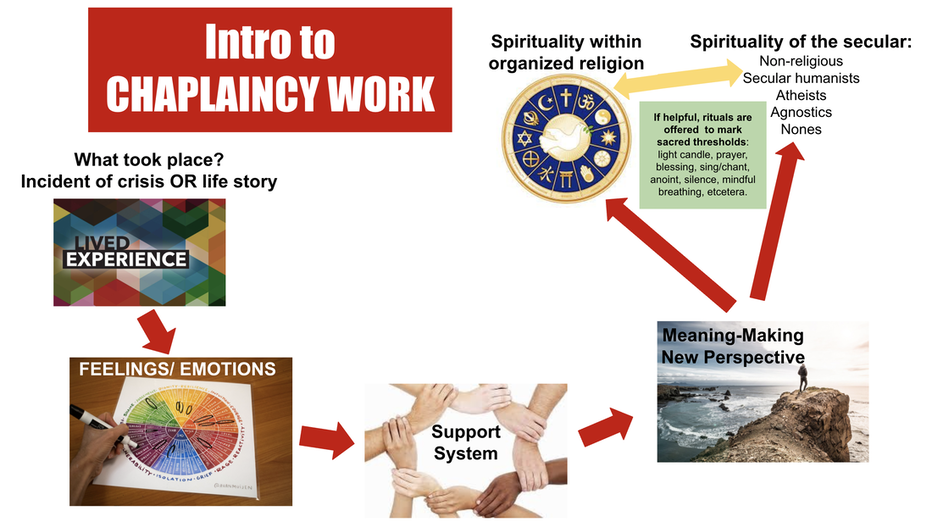Not too many people know what a hospital chaplain is and does, as evidenced by some myths about the role of chaplains: 1. you have to be religious to see a chaplain, 2. a chaplain is only for people who are dying, 3. chaplains are only there to give you bad news, 4. chaplains will try to make you become more Christian or religious.
Given these misconceptions, here are a few quick bullets to help you understand what a chaplain is.
Given these misconceptions, here are a few quick bullets to help you understand what a chaplain is.
- A chaplain is a trained and certified professional to provide emotional and spiritual support for people of any faith tradition or no faith tradition typically in healthcare settings, educational institutions and prison systems.
- The approach of care in chaplaincy is person-centered, which means that the focus does not revolve around the chaplain’s beliefs; instead, it is focused on supporting and unravelling the inner resources of the person in crisis.
- While our work may be therapeutic, chaplaincy is not therapy. We do not diagnose people’s mental health.
- In healthcare settings, we collaborate with doctors, nurses and mental health professionals in caring for patients and families. Since our expertise is on spirituality, we help people articulate how they make meaning out of their human experience - this includes articulation of people's world views and belief systems that enable or hinder their emotional & spiritual thriving and renewal.
- When helpful, chaplains facilitate religious/spiritual rituals to mark sacred thresholds of human experience. But chaplains also refer out to experts or religious authorities if the chaplain does not have the skill or knowledge about a particular spiritual or religious ritual.
- Sometimes chaplains facilitate spiritual care groups and grief support.
- Chaplains provide spiritual care not only for patients and their families, but also for healthcare staff.
- Professional chaplains are required to have a master’s degree in Theology or Divinity, and a supervised clinical training (yearlong residency) in a healthcare site. Chaplains are required to have endorsement from their faith community.
The graphic above shows the components of a spiritual care encounter with a chaplain. These conversation themes are what chaplains pay attention to; however, this is not linear and hence do not necessarily happen in this particular order.

